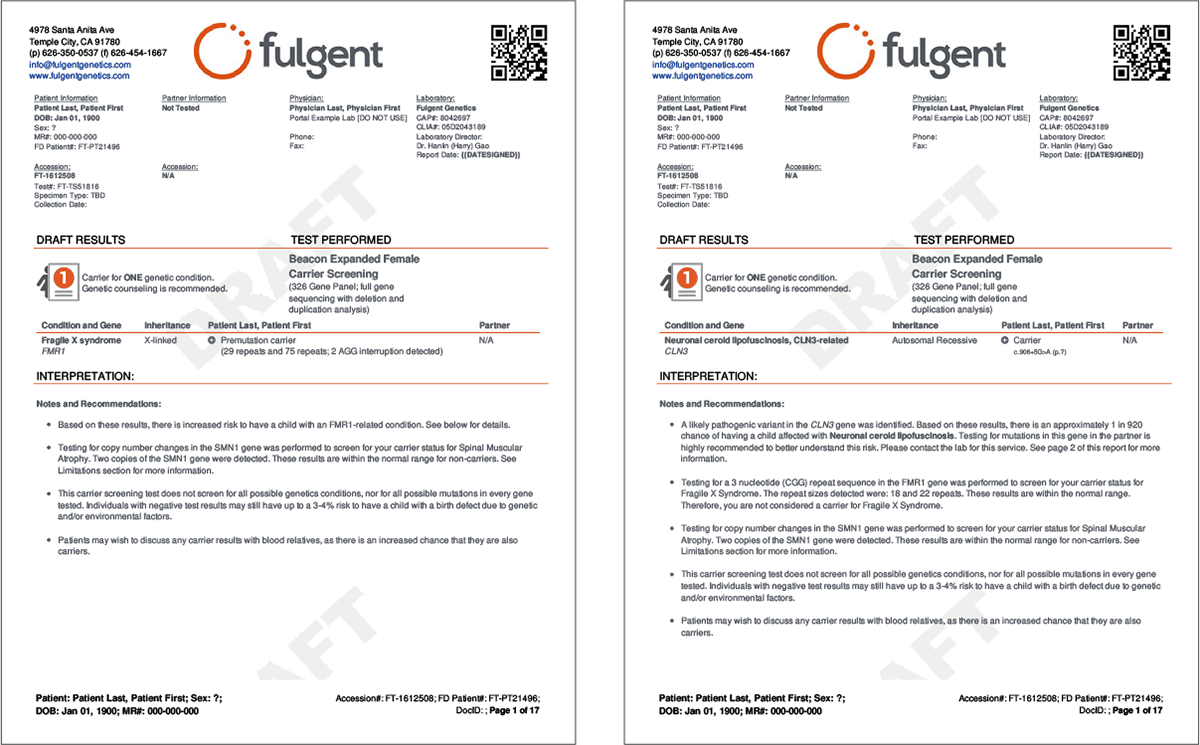Pan-ethnic carrier screening
TDL offers the Beacon Expanded Carrier Screening Panel, a comprehensive genetic screen for people of all ethnic backgrounds, and a panel that is optimised for individuals and couples of Ashkenazi Jewish ancestry.
The Beacon Expanded Carrier Screening Panel is a pan-ethnic screen for more than 400 autosomal recessive and X-linked conditions. Testing includes Cystic Fibrosis, Sickle Cell Disease, Thalassemia and Spinal Muscular Atrophy. These conditions vary in morbidity, mortality and treatment.
The panel examines:
- Sequence variants and small insertions/deletions.
- Deletion/duplications (copy number variants).
- Fragile X: The trinucleotide repeat (CGG) expansion in the 5’ untranslated region of the FMR1 gene.
- Spinal Muscular Atrophy: copy number changes in the SMN1 gene. Point mutations are not detected due to high sequence homology.
- Pseudogenes: carrier mutations in disease genes (such as GBA for Gaucher disease and HBA1/HBA2 for alpha thalassemia) which have highly similar inactive counterparts.
The Beacon Ashkenazi Jewish Carrier Screening Panel analyses genes for pathogenic variants known to cause recessive genetic disorders seen at high carrier frequencies within the Ashkenazi Jewish population (people whose relatives include Jewish people from eastern or central Europe). The diseases covered by this test include:
- Bloom syndrome
- Canavan disease
- Cystic fibrosis
- Familial dysautonomia
- Fanconi anaemia group C
- Gaucher disease
- Mucolipidosis IV
- Niemann-Pick disease type A
- Tay-Sachs disease
A full list of diseases covered by these panels is available from the laboratory.
Screening can be carried out for individuals or couples.
Male patients will not be screened for X-linked conditions. If an X-linked condition is suspected in a male patient, please contact the laboratory or a genetics specialist about diagnostic testing for that particular condition.
Indications for use
- Pre-pregnancy screening for couples that wish to check if they are silent carriers for a disease that would have serious implications for the future health of any children.
- For patients who are concerned about a family history of a particular disease, where common mutation detections are very high – such as Tay-Sachs Disease.
The report comes with a synopsis of any diseases for which a mutation was found, including prognosis, treatment and mode of inheritance. It includes a risk assessment and recommendations for further testing.

Limitations
A normal result does not rule out the possibility that the patient carries a rare mutation not detectible by this particular assay. For this reason, this test is also not appropriate to use as a direct prenatal screen (both parents must be confirmed carriers for a particular disease before we can offer prenatal diagnosis). Screening is not designed to detect somatic mutations.
